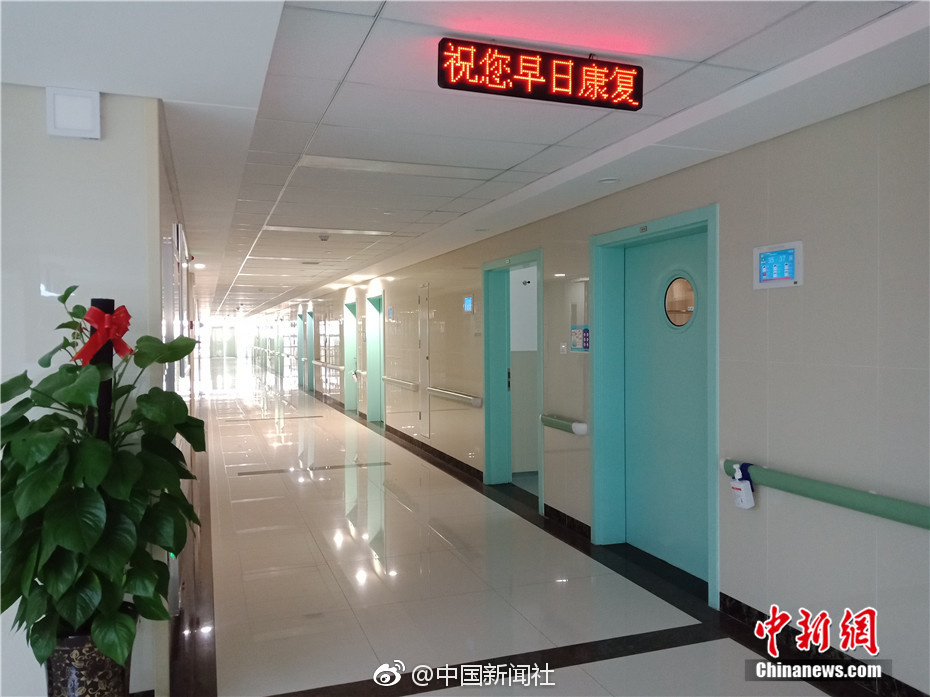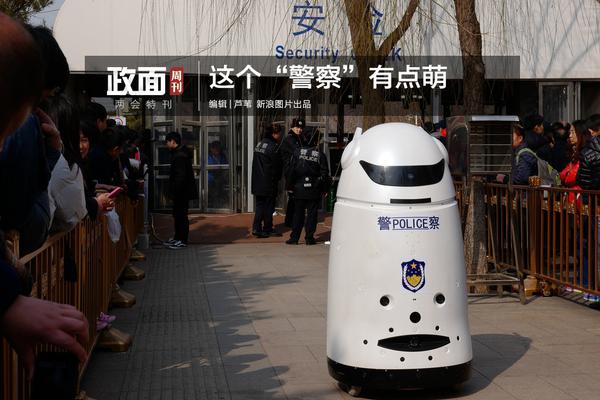
1. The main functions of the operating system: CPU management, storage management, file management, device management and operation management.
2. C [Analysis] The operating system should usually include the following five functional modules: (1) Processor management. When multiple programs run at the same time, solve the processor (CPU) time allocation problem. ( 2) Operation management. The program to complete an independent task and its required data constitute a task.
3. The five functions that computer operating systems usually have are CPU management, storage management, file management, equipment management and job management.
1. The five functions of the operating system are processor management, memory management, device management, file management and job management. Processor Management ProcessorThe most basic function of management is to handle interrupt events. After configuring the operating system, various events can be handled.
2. The main functions of the operating system: CPU management, storage management, file management, device management and operation management.
3. C [Analysis] The operating system should usually include the following five functional modules: (1) Processor management. When multiple programs run at the same time, solve the processor (CPU) time allocation problem. ( 2) Operation management. The program to complete an independent task and its required data constitute a task.
4. CPU management, storage management, file management, equipment management and operation management. According to the query Baidu Education, the five functions that computer operating systems usually have are ___.
The operating system has five functions: processor management: mainly controls and manages the work of the CPU. Storage management: mainly allocate and manage memory. Device management: mainly manage basic input and output devices. File management: responsible for the organization, storage, operation and protection of computer files.
C [Analysis] The operating system should usually include the following five functional modules: (1) Processor management. When multiple programs run at the same time, solve the processor (CPU) time allocation problem. ( 2) Operation management. The program to complete an independent task and its required data constitute a task.
CountThe five functions of computer operating systems are: processor management, memory management, device management, file management and job management. Processor management The most basic function of processor management is to process interrupt events. After configuring the operating system, various events can be processed.
The five functions that computer operating systems usually have are as follows: Processor management: When multiple programs are running at the same time, it solves the problem of processor time allocation. Homework management. Memory management: allocate storage space for each program and the data it uses, and ensure that they do not interfere with each other. Equipment management.
Computer operating systems usually have five functions, which are: Process management: Process management is responsible for managing multiple processes in the computer, including starting, stopping and scheduling the operation of processes.
CPU management, storage management, file management, equipment management and operation management. According to the query Baidu Education, the five functions that computer operating systems usually have are ___.

1. FuckThe five functions of the system are: processor management, memory management, equipment management, file management and operation management. Processor management: The most basic function of processor management is to handle interrupt events. The processor can only detect interrupt events and generate interrupts and cannot process them.
2. The five major functions of the operating system are processor management, memory management, device management, file management and job management. Processor management The most basic function of processor management is to process interrupt events. After configuring the operating system, various events can be processed.
3. The five major functions of the operating system include: process and processor management, operation management, storage management, equipment management and file management.
4. Five major functions of the operating system: process management, memory management, file system management, device management, user interface.Process management The operating system is responsible for managing the processes in the computer, including creating, terminating, scheduling and switching processes.
5. The function of the operating system is mainly reflected in the management of computer resources - microprocessor, memory, external equipment, files and tasks. The operating system sets this management function into the corresponding program management module, and each management module is responsible for a certain function. That is, the five functions of the operating system.
The functions of the computer operating system include: processor management, memory management, device management, file management, job management and other functional modules. Processor management. The most basic function of processor management is to handle interrupt events.The processor can only detect interrupt events and generate interrupts and cannot process them.
The characteristics of the batch processing operating system are: a. Users use computers offline. After the user submits the homework, he no longer deals with the computer until he gets the result. The task submission method can be directly submitted to the management operator of the computing center, or it can be submitted through the remote communication line.
The operating system has five functions: processor management: mainly controls and manages the work of the CPU. Storage management: mainly allocate and manage memory. Device management: mainly manage basic input and output devices. File management: responsible for the organization, storage, operation and protection of computer files.
The operating system mainly consists of 4 functions: managing computer system resources, controlling program execution, improving the human-computer interface and providing support for other software.Manage computer system resources. The resources in the computer system need to be managed and coordinated. The operating system must have this function to ensure fairness and efficiency.
The functions of the operating system include managing the hardware, software and data resources of the computer system, controlling the operation of programs, improving the human-computer interface, supporting other application software, etc.
The main functions of the operating system are: process management, whose work is mainly process scheduling. In the case of a single user and a single task, the processor is only monopolized by one user's task, and the work of process management is very simple.
Binance app download Play Store-APP, download it now, new users will receive a novice gift pack.
1. The main functions of the operating system: CPU management, storage management, file management, device management and operation management.
2. C [Analysis] The operating system should usually include the following five functional modules: (1) Processor management. When multiple programs run at the same time, solve the processor (CPU) time allocation problem. ( 2) Operation management. The program to complete an independent task and its required data constitute a task.
3. The five functions that computer operating systems usually have are CPU management, storage management, file management, equipment management and job management.
1. The five functions of the operating system are processor management, memory management, device management, file management and job management. Processor Management ProcessorThe most basic function of management is to handle interrupt events. After configuring the operating system, various events can be handled.
2. The main functions of the operating system: CPU management, storage management, file management, device management and operation management.
3. C [Analysis] The operating system should usually include the following five functional modules: (1) Processor management. When multiple programs run at the same time, solve the processor (CPU) time allocation problem. ( 2) Operation management. The program to complete an independent task and its required data constitute a task.
4. CPU management, storage management, file management, equipment management and operation management. According to the query Baidu Education, the five functions that computer operating systems usually have are ___.
The operating system has five functions: processor management: mainly controls and manages the work of the CPU. Storage management: mainly allocate and manage memory. Device management: mainly manage basic input and output devices. File management: responsible for the organization, storage, operation and protection of computer files.
C [Analysis] The operating system should usually include the following five functional modules: (1) Processor management. When multiple programs run at the same time, solve the processor (CPU) time allocation problem. ( 2) Operation management. The program to complete an independent task and its required data constitute a task.
CountThe five functions of computer operating systems are: processor management, memory management, device management, file management and job management. Processor management The most basic function of processor management is to process interrupt events. After configuring the operating system, various events can be processed.
The five functions that computer operating systems usually have are as follows: Processor management: When multiple programs are running at the same time, it solves the problem of processor time allocation. Homework management. Memory management: allocate storage space for each program and the data it uses, and ensure that they do not interfere with each other. Equipment management.
Computer operating systems usually have five functions, which are: Process management: Process management is responsible for managing multiple processes in the computer, including starting, stopping and scheduling the operation of processes.
CPU management, storage management, file management, equipment management and operation management. According to the query Baidu Education, the five functions that computer operating systems usually have are ___.

1. FuckThe five functions of the system are: processor management, memory management, equipment management, file management and operation management. Processor management: The most basic function of processor management is to handle interrupt events. The processor can only detect interrupt events and generate interrupts and cannot process them.
2. The five major functions of the operating system are processor management, memory management, device management, file management and job management. Processor management The most basic function of processor management is to process interrupt events. After configuring the operating system, various events can be processed.
3. The five major functions of the operating system include: process and processor management, operation management, storage management, equipment management and file management.
4. Five major functions of the operating system: process management, memory management, file system management, device management, user interface.Process management The operating system is responsible for managing the processes in the computer, including creating, terminating, scheduling and switching processes.
5. The function of the operating system is mainly reflected in the management of computer resources - microprocessor, memory, external equipment, files and tasks. The operating system sets this management function into the corresponding program management module, and each management module is responsible for a certain function. That is, the five functions of the operating system.
The functions of the computer operating system include: processor management, memory management, device management, file management, job management and other functional modules. Processor management. The most basic function of processor management is to handle interrupt events.The processor can only detect interrupt events and generate interrupts and cannot process them.
The characteristics of the batch processing operating system are: a. Users use computers offline. After the user submits the homework, he no longer deals with the computer until he gets the result. The task submission method can be directly submitted to the management operator of the computing center, or it can be submitted through the remote communication line.
The operating system has five functions: processor management: mainly controls and manages the work of the CPU. Storage management: mainly allocate and manage memory. Device management: mainly manage basic input and output devices. File management: responsible for the organization, storage, operation and protection of computer files.
The operating system mainly consists of 4 functions: managing computer system resources, controlling program execution, improving the human-computer interface and providing support for other software.Manage computer system resources. The resources in the computer system need to be managed and coordinated. The operating system must have this function to ensure fairness and efficiency.
The functions of the operating system include managing the hardware, software and data resources of the computer system, controlling the operation of programs, improving the human-computer interface, supporting other application software, etc.
The main functions of the operating system are: process management, whose work is mainly process scheduling. In the case of a single user and a single task, the processor is only monopolized by one user's task, and the work of process management is very simple.
Binance Download for PC Windows 10
author: 2025-01-23 04:39Binance Download for PC Windows 10
author: 2025-01-23 02:34 OKX Wallet download
OKX Wallet download
785.61MB
Check OKX Wallet APK
OKX Wallet APK
567.78MB
Check Binance download Android
Binance download Android
539.86MB
Check OKX Wallet to exchange
OKX Wallet to exchange
242.48MB
Check OKX Wallet Sign up
OKX Wallet Sign up
219.38MB
Check Binance download APK
Binance download APK
763.87MB
Check OKX Wallet apk download latest version
OKX Wallet apk download latest version
951.57MB
Check Binance download APK
Binance download APK
454.42MB
Check Binance download Android
Binance download Android
931.36MB
Check Binance download iOS
Binance download iOS
252.44MB
Check Binance US
Binance US
654.25MB
Check OKX Wallet apk download latest version
OKX Wallet apk download latest version
369.36MB
Check Binance market
Binance market
225.64MB
Check Binance download Android
Binance download Android
987.83MB
Check OKX Wallet download
OKX Wallet download
288.73MB
Check Binance download
Binance download
992.22MB
Check OKX Wallet Sign up
OKX Wallet Sign up
438.44MB
Check OKX Wallet
OKX Wallet
694.39MB
Check OKX Wallet download
OKX Wallet download
225.74MB
Check OKX Wallet app
OKX Wallet app
219.55MB
Check Binance Download for PC Windows 10
Binance Download for PC Windows 10
764.52MB
Check Binance download
Binance download
997.64MB
Check OKX Wallet app
OKX Wallet app
173.36MB
Check Binance login App
Binance login App
333.81MB
Check Binance download
Binance download
842.91MB
Check Binance login
Binance login
141.23MB
Check okx.com login
okx.com login
141.76MB
Check OKX Wallet extension
OKX Wallet extension
483.26MB
Check Binance login
Binance login
493.97MB
Check Okx app download
Okx app download
311.91MB
Check OKX Wallet app download for Android
OKX Wallet app download for Android
694.76MB
Check Binance wallet
Binance wallet
121.49MB
Check OKX app
OKX app
583.58MB
Check Binance login
Binance login
695.15MB
Check Binance download APK
Binance download APK
612.76MB
Check Binance US
Binance US
586.14MB
Check
Scan to install
Binance app download Play Store to discover more
Netizen comments More
111 不敢造次网
2025-01-23 04:38 recommend
2669 鲇鱼上竹网
2025-01-23 04:22 recommend
378 作好作歹网
2025-01-23 04:22 recommend
492 拂袖而归网
2025-01-23 03:21 recommend
2854 甘棠之爱网
2025-01-23 03:00 recommend